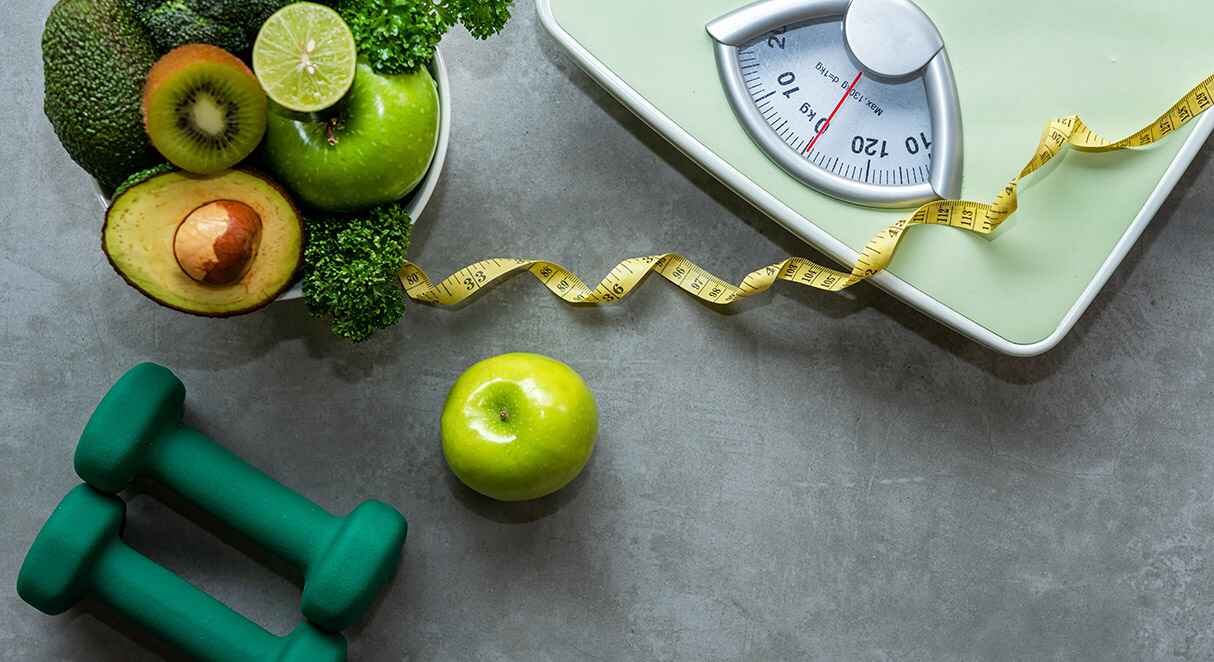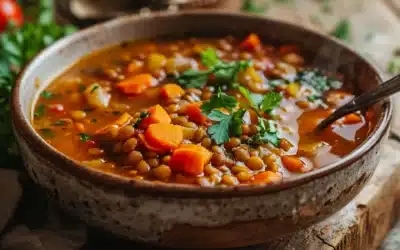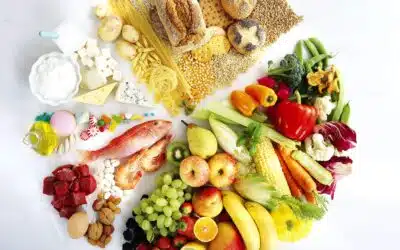Embarking on a weight loss journey often involves scrutinizing and redefining one’s diet. In recent years, vegetarianism has emerged not just as a lifestyle choice but as a highly effective approach for weight loss and improved health. This article explores the potential of vegetarian meal plans as a tool for shedding pounds and enhancing overall well-being. Vegetarian diets, known for their abundance of fruits, vegetables, whole grains, and legumes, offer a nutrient-rich, lower-calorie alternative to traditional meat-based diets. However, the key to successful weight loss with vegetarianism lies in understanding its principles, ensuring balanced nutrition, and creatively structuring meal plans. We will delve into the different types of vegetarian diets, highlight crucial nutritional considerations, and provide practical tips for designing effective and enjoyable vegetarian meal plans for weight loss. Additionally, we will address common challenges faced by individuals on this journey and share inspiring success stories. Whether you are a long-time vegetarian or considering this path for the first time, this guide aims to empower you with knowledge and inspiration to achieve your weight loss goals with plant-powered goodness.
Understanding Vegetarianism: Basics and Varieties
The Foundation of Vegetarianism
Vegetarianism is a dietary lifestyle that excludes meat, fish, and poultry. People often adopt vegetarianism for health, environmental, or ethical reasons. In terms of weight loss, a vegetarian diet can be highly effective due to its focus on nutrient-rich, low-calorie foods.
Types of Vegetarian Diets
Lacto-Vegetarian: Includes dairy products but excludes meat, fish, poultry, and eggs.
Ovo-Vegetarian: Includes eggs but excludes meat, fish, poultry, and dairy products.
Lacto-Ovo Vegetarian: Includes both dairy products and eggs but excludes meat, fish, and poultry.
Pescatarian: Includes fish but excludes meat and poultry (often considered a semi-vegetarian diet).
Flexitarian: A primarily vegetarian diet that occasionally includes meat or fish.
Weight Loss Advantages of Vegetarian Diets
Vegetarian diets are typically lower in calories and fat compared to meat-based diets, making them effective for weight loss. They are also high in dietary fiber, which promotes satiety and helps in regulating digestion.
Nutrient Density and Plant-Based Diets
Vegetarian diets are rich in essential nutrients like vitamins, minerals, and antioxidants. The emphasis on fruits, vegetables, whole grains, and legumes ensures a diverse intake of these nutrients, crucial for overall health and weight management.
Environmental and Ethical Considerations
Apart from health benefits, vegetarian diets are often chosen for their lower environmental impact and ethical considerations regarding animal welfare. This holistic approach to eating encourages a deeper connection to food choices and their broader implications.
Conclusion
Understanding the basics and varieties of vegetarianism is the first step in adopting this lifestyle for effective weight loss. With its focus on nutrient-dense, low-calorie foods, a vegetarian diet can be a powerful tool in achieving weight loss goals while also contributing to overall health and environmental sustainability.

Nutritional Considerations in a Vegetarian Diet for Weight Loss
Protein in a Vegetarian Diet
Protein is crucial for weight loss, muscle maintenance, and overall health. Contrary to popular belief, several plant-based foods are rich in protein. These include tofu, tempeh, lentils, chickpeas, and quinoa. These protein sources are not only effective for weight management but also provide essential amino acids, vitamins, and minerals.
Fiber: The Weight Loss Champion
Fiber, abundant in a vegetarian diet, is a key player in weight loss. It helps in feeling full longer, thus reducing overall calorie intake. Foods like fruits, vegetables, whole grains, and legumes are excellent sources of dietary fiber.
Balancing Macronutrients
A well-balanced vegetarian diet should include a mix of protein, fats, and carbohydrates. Healthy fats from avocados, nuts, and seeds, along with complex carbohydrates from whole grains, provide sustained energy and satiety.
Micronutrients to Watch For
While a vegetarian diet is rich in many nutrients, there are certain micronutrients to be mindful of, such as Vitamin B12, iron, calcium, and omega-3 fatty acids. Including fortified foods or supplements, and a variety of food sources can help in maintaining optimal levels of these nutrients.
Calorie Density and Portion Control
Vegetarian foods, especially fruits and vegetables, are often lower in calorie density. This allows for larger portions without consuming too many calories, which is beneficial for weight loss. However, portion control is still crucial, particularly with calorie-dense foods like nuts and seeds.
Hydration and Weight Loss
Hydration plays a vital role in weight loss. Drinking adequate water aids in digestion, nutrient absorption, and feeling full, which can help in reducing unnecessary snacking.
Conclusion
A vegetarian diet, when well-planned, can be nutritionally complete and highly effective for weight loss. It’s essential to focus on protein intake, balance macronutrients, and ensure adequate levels of critical micronutrients. With its high fiber content and lower calorie density, a vegetarian diet can be an excellent choice for those looking to lose weight healthily.
Designing Your Vegetarian Weight Loss Plan: Meal Ideas and Tips
1. Start with a Solid Breakfast
A nutritious breakfast sets the tone for the day. Opt for options like oatmeal with fruits and nuts, a smoothie with spinach, banana, and plant-based protein powder, or a tofu scramble with vegetables. These choices are not only filling but also packed with nutrients.
2. Incorporate Protein in Every Meal
Protein is essential for satiety and muscle maintenance. Include a protein source in every meal, such as lentils in your soup, chickpeas in your salad, or tempeh in your stir-fry. This ensures you’re meeting your daily protein requirements.
3. Focus on Whole Foods
Base your diet around whole foods like vegetables, fruits, whole grains, and legumes. These foods are rich in fiber and nutrients, which are vital for weight loss and overall health. Avoid or limit processed foods, which are often high in calories and low in nutritional value.
4. Experiment with International Cuisines
Many international cuisines offer a plethora of vegetarian dishes that are both delicious and healthy. Try Indian lentil curries, Mexican bean tacos, or Japanese vegetable sushi to add variety to your diet.
5. Plan Your Snacks
Healthy snacking is an important part of any weight loss plan. Prepare snacks like carrot sticks with hummus, a handful of almonds, or fresh fruit to prevent hunger pangs and avoid unhealthy choices.
6. Stay Hydrated
Drinking enough water is crucial for weight loss. It helps in digestion and can also aid in controlling hunger. Aim for at least 8 glasses of water a day.
7. Practice Portion Control
Even with healthy vegetarian foods, portion control is key. Use measuring cups or a kitchen scale to get familiar with correct portion sizes.
8. Monitor Your Progress
Keep track of your meals and progress. This can be done through a food diary or an app. Monitoring helps in making necessary adjustments to your diet plan.
Conclusion
Creating a vegetarian meal plan for weight loss involves more than just choosing plant-based foods; it requires thoughtful planning and variety to ensure all nutritional needs are met. By following these tips and ideas, you can enjoy delicious, satisfying meals while on your journey to weight loss.
Overcoming Common Challenges: Satiety, Variety, and Nutrition
Maintaining Satiety
One of the challenges in a vegetarian diet, especially for weight loss, is feeling full after meals. To combat this, include protein-rich foods like legumes, tofu, and quinoa in your meals. These not only provide satiety but also ensure a steady release of energy. Additionally, fiber-rich foods like vegetables and whole grains can also help in feeling fuller for longer.
Ensuring Nutritional Balance
A well-balanced vegetarian diet should include a variety of foods to meet all nutritional needs. Pay attention to protein, iron, calcium, vitamin B12, and omega-3 fatty acids. Include a mix of fruits, vegetables, whole grains, nuts, seeds, and legumes in your diet. Consider supplements for nutrients that are challenging to obtain solely from plant-based sources, such as vitamin B12.
Incorporating Variety in Meals
To prevent boredom and ensure a range of nutrients, it’s important to incorporate variety into your vegetarian diet. Experiment with different vegetables, grains, and protein sources. International cuisines can offer a plethora of vegetarian dishes that are both delicious and healthy.
Meal Planning and Preparation
Effective meal planning and preparation can significantly impact the success of a vegetarian diet for weight loss. Plan your meals for the week, and prepare portions in advance to avoid last-minute unhealthy choices. This approach not only saves time but also ensures that you’re eating balanced and nutritious meals.
Managing Social and Dining Out Situations
Navigating social situations and dining out can be challenging on a vegetarian diet. Look for vegetarian-friendly restaurants or menu options, and don’t hesitate to ask for modifications when dining out. Communicate your dietary preferences when attending social events to ensure there are suitable options available.
Conclusion
While there are challenges associated with a vegetarian diet for weight loss, they can be effectively managed with planning and knowledge. By focusing on satiety, nutritional balance, and meal variety, you can enjoy a healthy, satisfying, and successful weight loss journey on a vegetarian diet.

Success Stories: Inspirational Accounts of Weight Loss with Vegetarian Diets
The Power of Plant-Based Transformation
The journey to weight loss and improved health is deeply personal and often challenging. However, numerous individuals have found success through vegetarian meal plans. These stories not only demonstrate the effectiveness of a plant-based diet in achieving weight loss goals but also highlight the positive changes in overall health and well-being.
Diverse Journeys, Common Goal
People from all walks of life have turned to vegetarian diets for weight loss, each with their unique challenges and triumphs. These stories range from busy professionals who found simple, plant-based meals to be the key to shedding pounds, to individuals with health concerns who experienced significant improvements in their conditions.
Beyond Weight Loss
While the primary focus of these accounts is weight loss, many have discovered additional benefits, such as increased energy, better digestion, improved skin health, and a newfound appreciation for wholesome, nutritious foods.
A Source of Inspiration
These success stories serve as a powerful source of motivation for others embarking on their weight loss journey. They exemplify that with determination, a well-planned vegetarian diet, and a focus on holistic well-being, significant and sustainable weight loss is achievable.
The Vegetarian Diet is a plant-based eating pattern that excludes meat, poultry, and seafood. This dietary choice can offer a wide range of health benefits, such as a lower risk of heart disease, improved weight management, and reduced environmental impact.
Conclusion
Embarking on a weight loss journey can be a transformative experience, and as we’ve explored, a vegetarian diet offers a unique and effective path towards this goal. Through the diverse array of plant-based foods, not only can one achieve sustainable weight loss, but also enjoy a myriad of health benefits. From increased energy and improved metabolic health to a more profound sense of well-being, the power of a vegetarian diet is clear.
The key to success lies in understanding the basics of vegetarian nutrition, creatively planning meals, and embracing the variety that this diet offers. Overcoming common challenges like maintaining satiety and ensuring nutritional balance becomes manageable with knowledge and preparation. The inspiring success stories of individuals who have achieved their weight loss goals on a vegetarian diet serve as a testament to its efficacy.
As you embark on your vegetarian weight loss journey, remember that it’s about more than just shedding pounds; it’s about nurturing your body with wholesome, nutrient-rich foods that not only fuel weight loss but also promote overall health and vitality. With the right approach, vegetarian meal plans can be a delicious, satisfying, and rewarding pathway to achieving your weight loss goals and enhancing your quality of life.weight loss success stories












